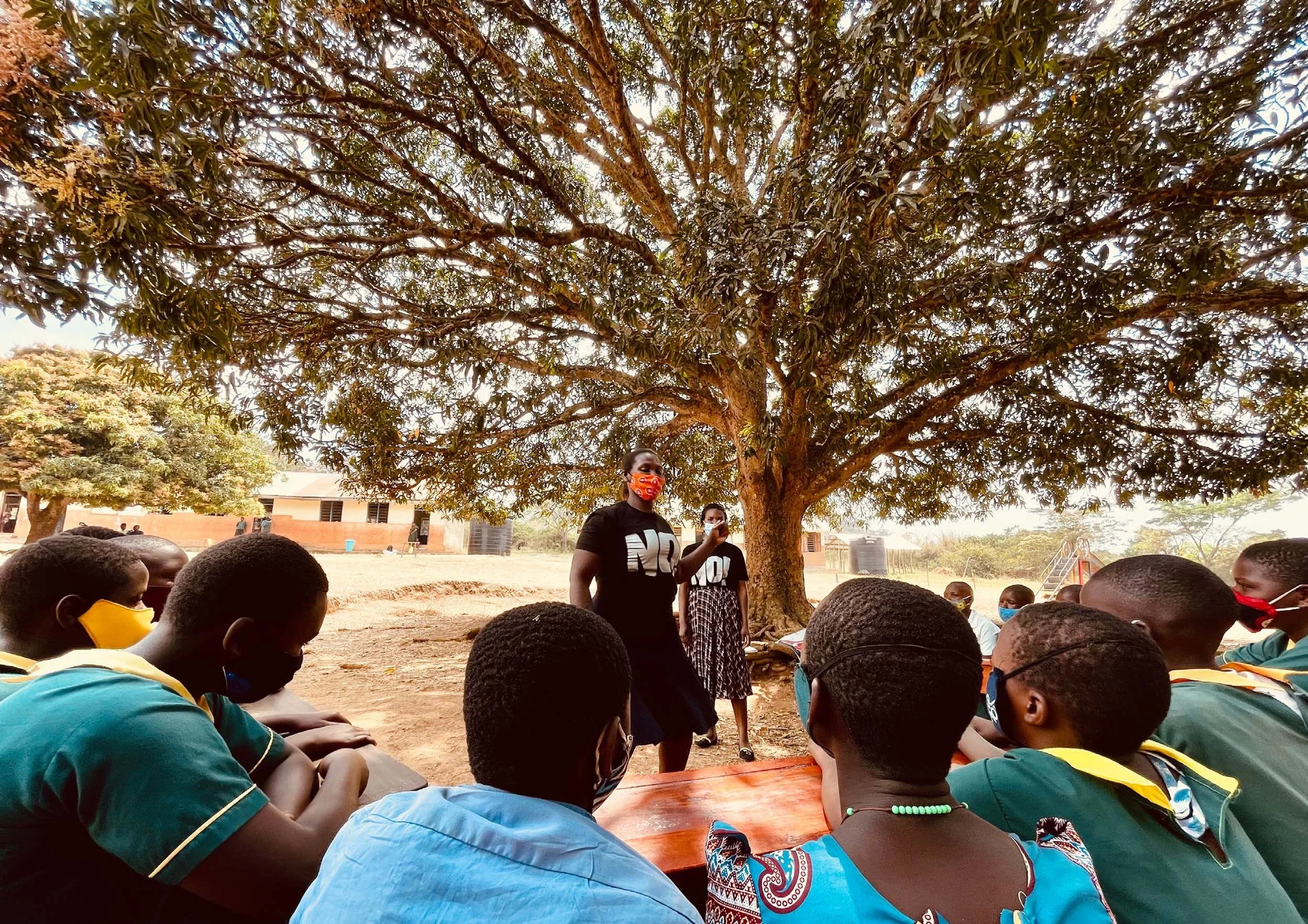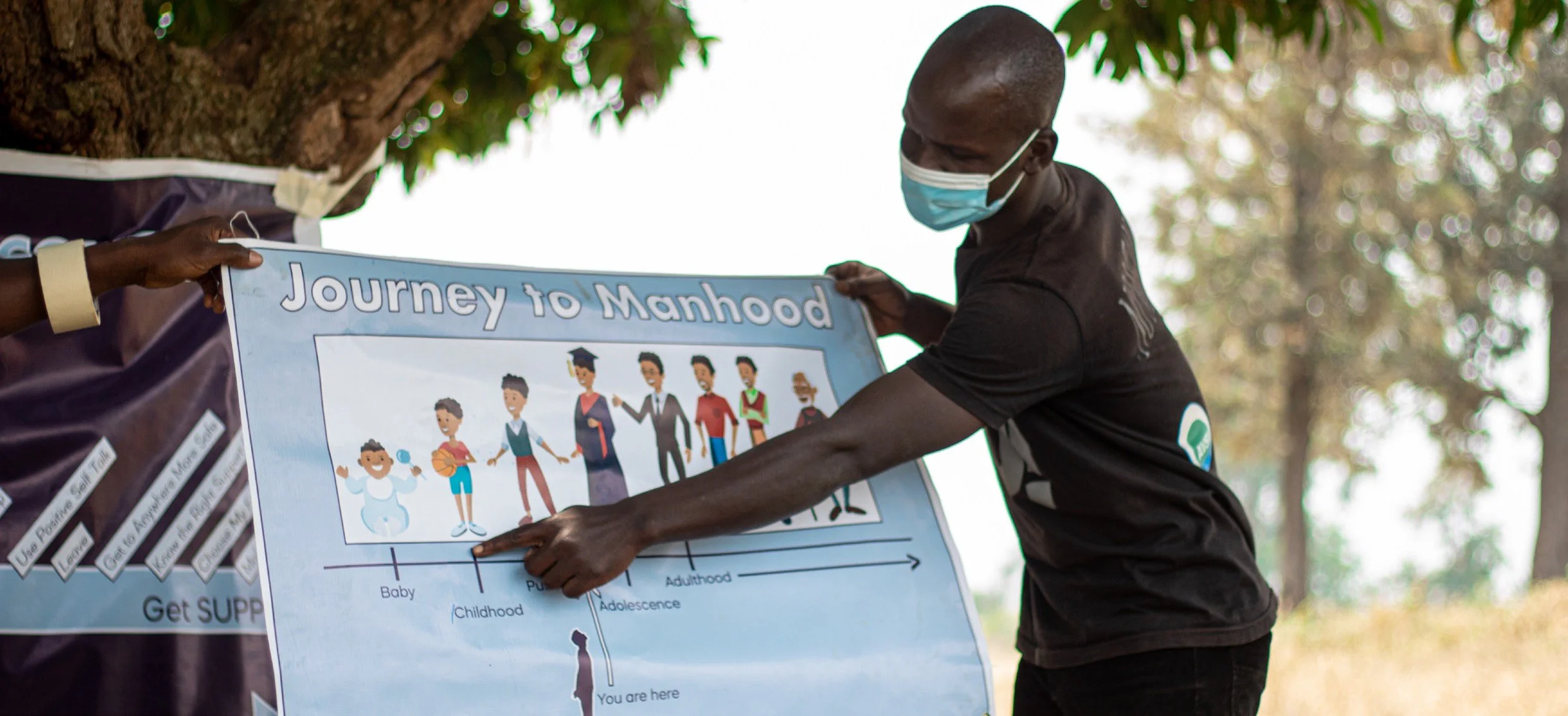Since 2019, AVSI Foundation in Uganda has implemented No Means No programming for girls and boys as part of their gender-based violence (GBV) and HIV prevention and response work. (See a video of their program in action here!) AVSI exemplifies the NMNW value of “learning” through their efforts to build evidence about how the No Means No program addresses Sexual and Gender-Based Violence (SGBV) in the Uganda context.
AVSI’s ongoing scientific research about the impact of the No Means No program in their community can serve as a roadmap for other No Means No partners looking to conduct similar research. Their longitudinal cohort study sets out to answer: How does a violence prevention program empower a learning community to address Sexual and Gender-Based Violence (SGBV) and promote their sense of self-esteem and self-efficacy? The research design includes 600 youth in the intervention group and 600 youth in the control group, all of whom are surveyed at baseline and then two more times within an eight-month period for follow-up.
AVSI took the following steps to design and conduct their research:
Conducting a thorough needs assessment to learn more about SGBV in the Kikuube district, the area that AVSI identified as the location for the study.
The Kikuube district was selected due to its high rates of GBV identified during the nationwide VAC Survey conducted in 2018-2019. Additionally, there were no other USAID primary prevention programs ongoing in the district, meaning that the control group would be an accurate indicator of youth knowledge and attitudes pre-intervention.
Hiring an external consultant from Makerere University to work on a research proposal to submit to the Institutional Review Board (IRB).
The decision to hire a consultant was made in order to avoid bias and increase stakeholder trust in the research findings.
Submitting the research proposal to the IRB showing that the planned research is ethical and won’t harm participants in any way.
Translating research tools into the local language.
Training No Means No Instructors on the research methodology and how to administer the tools.
No Means No Instructors were selected as research administrators due to their background knowledge in sensitive topics, confidentiality, and consent.
Identifying and generating the list of all potential eligible youth within the targeted area of the research.
Randomly selecting youth for the control and intervention groups from the generated list.
Obtaining written parental consent from parents and caregivers of youth selected for the study.
Conducting one-on-one interviews with the selected youth (both treatment and control).
Conducting key informant interviews with community development officers and community leaders who have intimate knowledge of issues of SGBV on the ground.
Conducting single-gender and age cohort focus group interviews with youth selected to partake in the study.
Photo courtesy AVSI Uganda
AVSI shared that one of the most successful components of this research project was ensuring that community leaders and development officers in the district own the research and understand the findings. This ownership is essential because the research isn’t just for AVSI as a partner, it’s for the benefit of the community and ensuring that the intervention effectively addresses the needs identified. AVSI was able to attain this sense of community ownership by involving stakeholders in the research design process, data collection, and dissemination of findings.
If you are interested in consulting with AVSI to learn more about their research project or to understand how your organization could do something similar, please reach out to NMNW at partnerships@nmnw.org and we can put you in touch. NMNW would like to appreciate and thank AVSI for all their hard work towards ending gender-based violence in Uganda!



